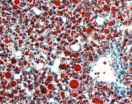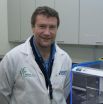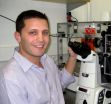(Press-News.org) A team of researchers from the Spanish National Cancer Research Centre (CNIO), led by Manuel Serrano, from the Tumour Suppression Group, together with scientists from London and Santiago de Compostela, has discovered that the cellular reprogramming gene SOX2, which is involved in several types of cancers, such as lung cancer and pituitary cancer, is directly regulated by the tumor suppressor CDKN1B(p27) gene, which is also associated with these types of cancer.
The same edition of the online version of the journal also includes a study led by Massimo Squatrito, who recently joined the CNIO to direct the Seve Ballesteros Foundation Brain Tumour Group. This study, carried out in Eric C. Holland's laboratory, at the Memorial Sloan Kettering Cancer Center (MSKCC), in Nueva York, shows the relationship between MEF, a gene regulator involved glioblastomas - the most aggressive and common brain tumours -, and SOX2.
YAMANAKA'S CELLULAR REPROGRAMMING CONTINUES TO SURPRISE
The cell reprogramming process, discovered by this year's Nobel Prize winner, Shinya Yamanaka, has become a powerful tool for researchers. Via the introduction of a cocktail of four genes into cells, among them SOX2, scientists can reprogram cells and transform them into stem cells which can be used to study a variety of processes, including cancer.
The research team led by Manuel Serrano and Manuel Collado was interested in the possible role of the tumour suppressor gene CDKN1B(p27) in reprogramming. During the course of these studies, Han Li, first author of the study, unexpectedly discovered that cells deficient in the CDKN1B(p27) gene could be reprogrammed without the need to introduce SOX2. This observation was the starting point to unravel the functional relationship between both genes.
The work led by Squatrito, in which the researcher Elena Bazzoli figures as first author, was based on earlier works that linked SOX2 with tumorigenesis. The article describes how SOX2 is regulated by MEF in cells of the nervous system. "Brain tumour cells acquire stem cell traits thanks to the participation of SOX2, and this produces an increase in tumorigenic potential" states Squatrito.
These new insights help to understand the origin of cancers linked to CDKN1B(p27) and MEF, and highlight the potential role of adult stem cells in cancer.
### Reference articles:
p27Kip1 directly represses Sox2 during embryonic stem cell differentiation. Han Li, Manuel Collado, Aranzazu Villasante, Ander Matheu, Cian J. Lynch, Marta Cañamero, Karine Rizzoti, Carmen Carneiro, Gloria Martínez, Anxo Vidal, Robin Lovell-Badge, Manuel Serrano. Cell Stem Cell (2012). doi: 10.1016/j.stem.2012.09.014
MEF Promotes Stemness in the Pathogenesis of Gliomas. Elena Bazzoli, Teodoro Pulvirenti, Moritz C. Oberstadt, Fabiana Perna, Boyoung Wee, Nikolaus Schultz, Jason T. Huse, Elena I. Fomchenko, Francesca Voza, Viviane Tabar, Cameron W. Brennan, Lisa M. DeAngelis, Stephen D. Nimer, Eric C. Holland, Massimo Squatrito. Cell Stem Cell (2012). doi: 10.1016/j.stem.2012.09.012
A relationship between cancer genes and the reprogramming gene SOX2 discovered
These studies shed new light on the molecular origin of pathologies associated with these genes, as well as the potential role of stem cells in tumorigenesis
2012-12-06
ELSE PRESS RELEASES FROM THIS DATE:
Study IDs gene that turns carbs into fat
2012-12-06
Berkeley — A gene that helps the body convert that big plate of holiday cookies you just polished off into fat could provide a new target for potential treatments for fatty liver disease, diabetes and obesity.
Researchers at the University of California, Berkeley, are unlocking the molecular mechanisms of how our body converts dietary carbohydrates into fat, and as part of that research, they found that a gene with the catchy name BAF60c contributes to fatty liver, or steatosis.
In the study, to be published online Dec. 6 in the journal Molecular Cell, the researchers ...
ACNP: Novel NMDA receptor modulator significantly reduces depression scores within hours
2012-12-06
HOLLYWOOD, FL and EVANSTON, IL, December 6, 2012 -- Naurex Inc., a clinical stage company developing innovative treatments to address unmet needs in psychiatry and neurology, today reported positive results from a Phase IIa clinical trial of its lead antidepressant compound, GLYX-13. GLYX-13 is a novel partial agonist of the NMDA receptor. The Phase Ila results are being presented this week at the 51st Annual Meeting of the American College of Neuropsychopharmacology (ACNP).
The Phase IIa results show that a single administration of GLYX-13 produced statistically significant ...
Research yields understanding of Darwin's 'abominable mystery'
2012-12-06
Research by Indiana University paleobotanist David L. Dilcher and colleagues in Europe sheds new light on what Charles Darwin famously called "an abominable mystery": the apparently sudden appearance and rapid spread of flowering plants in the fossil record.
Writing in the Proceedings of the National Academy of Sciences, the researchers present a scenario in which flowering plants, or angiosperms, evolved and colonized various types of aquatic environments over about 45 million years in the early to middle Cretaceous Period.
Dilcher is professor emeritus at IU Bloomington ...
Environmental chemical blocks cell function
2012-12-06
Bisphenol A, a substance found in many synthetic products, is considered to be harmful, particularly, for fetuses and babies. Researchers from the University of Bonn have now shown in experiments on cells from human and mouse tissue that this environmental chemical blocks calcium channels in cell membranes. Similar effects are elicited by drugs used to treat high blood pressure and cardiac arrhythmia. The results are now presented in the journal "Molecular Pharmacology."
The industrial chemical bisphenol A (BPA) is worldwide extensively utilized for manufacturing polycarbonates ...
New evidence for epigenetic effects of diet on healthy aging
2012-12-06
New research in human volunteers has shown that molecular changes to our genes, known as epigenetic marks, are driven mainly by ageing but are also affected by what we eat.
The study showed that whilst age had the biggest effects on these molecular changes, selenium and vitamin D status reduced the accumulation of epigenetic changes, and high blood folate and obesity increased them. These findings support the idea that healthy ageing is affected by what we eat.
Researchers from the Institute of Food Research led by Dr Nigel Belshaw, working with Prof John Mathers and ...
New understanding can lead to srategies for dealing with neurodegenerative diseases
2012-12-06
Jerusalem Dec. 6, 2012 – A new understanding of what takes place on the cellular level during the development of neurodegenerative diseases, such as Parkinson's, Alzheimer's, ALS and Huntington's diseases, offers promise towards possible new strategies for combating such diseases, say Hebrew University of Jerusalem researchers.
Neurodegenerative conditions result from an impairment of motor function or cognitive function or both. This impairment results from degeneration in the particular area of the brain responsible for those functions.
Although these neurodegenerative ...
'Releasing' people from Catholic guilt increases generosity towards church, research shows
2012-12-06
People who recall being absolved of their sins, are more likely to donate money to the church, according to research published today in the journal Religion, Brain and Behavior.
Researchers from Royal Holloway and the University of Oxford assigned participants two memory tasks. In the first, they were asked to privately recall a sin that they had committed in the past, while in the second, they recalled attending confession for this sin or imagined doing so, if they had not confessed in reality.
Each participant was also given an opportunity to donate to a local Catholic ...
My microbes
2012-12-06
We all have E.coli bacteria in our gut but each of us carries a version that is genetically slightly different. The same can be said of most gut microbes: our own gut metagenome, that is the sum of all the genomes of all our gut microbes, appears to be really specific to each of us, and to remain stable over time. For the first time, researchers from the European Molecular Biology Laboratory (EMBL) have studied this metagenome at such a high resolution that individual mutations in the various strains could be analysed. Their findings, published today in Nature, could have ...
Insight into DNA reprogramming during egg and sperm cell development
2012-12-06
Scientists at the Babraham Institute have gained a new understanding of when and how the DNA in developing egg and sperm cells is 'reset', in preparation for making a new embryo. It is well known that small chemical groups can be added to DNA to alter gene activity, these modifications to the DNA are acquired during development in the womb and throughout adult life and can arise from changes in environment. Most of these modifications are removed in immature egg and sperm cells to 'reset' the DNA and to erase any 'environmental memory', but some remain. Decoding this reprogramming ...
Cocktail boosts immune cells in fighting cancer
2012-12-06
Fighting cancer using the body's own defense system is a promising treatment approach. Immune therapies have even become clinical routine in treating a few cancers such as malignant melanoma and prostate cancer. Natural killer cells (or NK cells) are considered to be particularly suitable weapons against cancer. They are part of the innate immune system and respond to a wide range of cancer cells of diverse origin. Moreover, NK cells also kill tumor cells that have lost a specific target and go unnoticed by other immune cells.
"The big problem in using NK cells for therapy ...
LAST 30 PRESS RELEASES:
Ultrasound AI receives FDA De Novo clearance for delivery date AI technology
Amino acid residue-driven nanoparticle targeting of protein cavities beyond size complementarity
New AI algorithm enables scientific monitoring of "blue tears"
Insufficient sleep among US adolescents across behavioral risk groups
Long COVID and recovery among US adults
Trends in poverty and birth outcomes in the US
Heterogeneity of treatment effects of GLP-1 RAs for weight loss in adults
Within-person association between daily screen use and sleep in youth
Low-dose lithium for mild cognitive impairment
Catheter ablation and oral anticoagulation for secondary stroke prevention in atrial fibrillation
A new theory of brain development
Pilot clinical trial suggests low dose lithium may slow verbal memory decline
Bioprinting muscle that knows how to align its cells just as in the human body
A hair-thin fiber can read the chemistry of a single drop of body fluid
SwRI develops magnetostrictive probe for safer, more cost-effective storage tank inspections
National report supports measurement innovation to aid commercial fusion energy and enable new plasma technologies
Mount Sinai, Uniformed Services University join forces to predict and prevent diseases before they start
Science of fitting in: Do best friends or popular peers shape teen behavior?
USF study: Gag grouper are overfished in the Gulf; this new tool could help
New study from Jeonbuk National University finds current climate pledges may miss Paris targets
Theoretical principles of band structure manipulation in strongly correlated insulators with spin and charge perturbations
A CNIC study shows that the heart can be protected during chemotherapy without reducing antitumor efficacy
Mayo Clinic study finds single dose of non-prescribed Adderall raises blood pressure and heart rate in healthy young adults
Engineered immune cells show promise against brain metastases in preclinical study
Improved EV battery technology will outmatch degradation from climate change
AI cancer tools risk “shortcut learning” rather than detecting true biology
Painless skin patch offers new way to monitor immune health
Children with poor oral health more often develop cardiovascular disease as adults
GLP-1 drugs associated with reduced need for emergency care for migraine
New knowledge on heritability paves the way for better treatment of people with chronic inflammatory bowel disease
[Press-News.org] A relationship between cancer genes and the reprogramming gene SOX2 discoveredThese studies shed new light on the molecular origin of pathologies associated with these genes, as well as the potential role of stem cells in tumorigenesis


